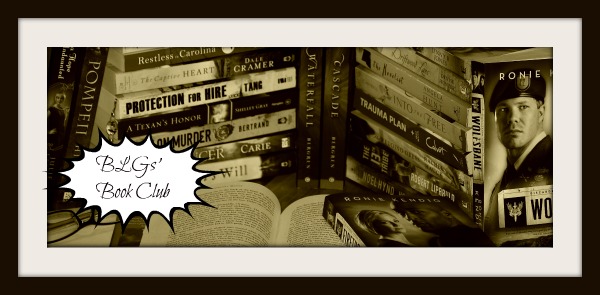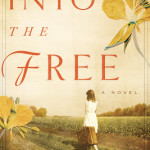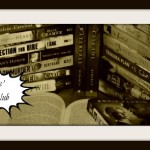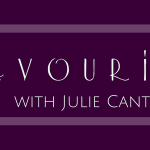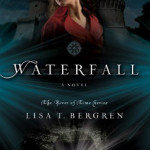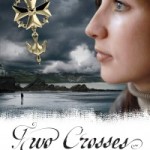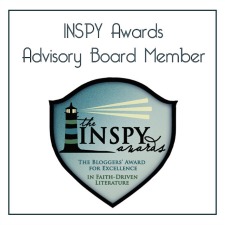My book club’s May selection was Julie Cantrell’s deeply moving debut novel, Into the Free, a book each member highly recommends. Julie graciously answered our many questions which I’m delighted to share with you in two parts.
**Please be aware there are significant spoilers below so read at own risk!**
Into the Free
With an abusive father and a “nothing mama,” it seems that young Millie has no hope. She longs to flee Depression-era Mississippi and the madness that marks her world. Then a sweet gum tree she calls Sweetie, her beloved neighbor Sloth, and a band of gypsies that caravans through town all combine in a life-changing way. Her traveling friends lead Millie to a box filled with family secrets, and Millie wonders what its contents mean for her future.
Will it give her the means to break her family’s cycle of abuse? Will she find a way to be safe and loved?
BLGs: I was fascinated with the gypsies. I was born and raised in LA (Lower Alabama) and have never heard of any gypsies. In your research did you find that they traveled through Southeast Alabama?
Julie: Thanks. I’m so glad you were intrigued by this aspect of the story. Now I’m wondering how an Alabama girl ends up in Australia!
Yes, “Gypsies” have traveled across the southern US for many years, and they continue to do so today. In fact, the “Gypsy Queen” Kelly Mitchell died during childbirth in 1915 while camped in Coatopa, Alabama. Meridian, Mississippi was the nearest city with ice (which was needed to store her body for two weeks while other Travelers made their way to mourn in Mississippi). So, that’s where the funeral was held, and her gravesite can still be seen there today.
Many “Gypsies” do continue to live in the southeastern states and this is the time of year when they relocate to their northern camps for the summer. Most of them live in camper trailers or apartments today and are assimilated within the main culture. The men usually work in the construction field. The women often stay home. Many of them have very little formal education, some quitting school by second or third grade. But the younger generations are beginning to focus a bit more on education, as they aren’t as migratory as they used to be and are finding it easier to stay in school.
Did you decide from the get go that Bill Miller had been engaged to Marie or did that happen as you allowed Diana to ask Millie to move in with them?
I honestly didn’t know anything that was going to happen until I wrote it. It all came to me very naturally and organically, as if Millie was telling me her story. Once the story was all on paper, I went back through the original draft and worked to arrange the structure and the pacing. At that time, I included some foreshadowing that would prepare the reader for Bill Miller’s darker side, but originally it was all unexpected. Other than mentioning a ring in the box, I chose not to specifically foreshadow the engagement because I wanted that to be a complete surprise (as it was for Millie).
I really liked Diana to start with, but after that card game gossip session, changed my mind! ( So southern by the way! I pictured so many “affluent” woman from my hometown in that scene!)
Thanks again. I’m really glad you can picture people in real life that remind you of the characters. Diana is a complex character and I think there’s a lot to discuss about her. In my mind, she wants to do the right thing. She cares about Millie and is not a cruel person by nature. However, when put in the position to choose doing what’s right or protecting her own social status and image, she fails to show that depth of character we want to see in her. It’s a big let down for Millie (and for us), but it’s authentic to Diana’s character. I’m guessing we can all name several women who have made the same choice as Diana…and that’s in today’s age, when women have many more options than Diana would have had in her situation.
I ‘purchased’ Into the Free’ for my Kindle while it was available free on Amazon. Last time I looked it was just over $6. What effect/s do Amazon’s pricing policies have from a writer’s perspective?
This is an interesting question and one I have thought about a lot lately. Because this is my first novel, I’m new at all of this. That said, ebooks are still new to all of us, and the publishing industry seems to be struggling to figure out exactly what to do with the entire movement. It’s interesting to note that many authors are seeing most of their sales now in the e-book portion of the market rather than in print. In recent months, libraries have even begun allowing members to “borrow” ebooks, so there’s a lot of discussion in the industry about how to make this transition to digital media while maintaining the integrity of the artist’s creation. Like the music industry’s jump from cd to downloads and free online listening…there’s a constant struggle to build an interested audience while charging enough to keep everyone in business. Tough issues, no doubt.
As a debut novelist, Amazon has been really good to me. The tiered promotion was so successful for Into the Free that Amazon left the book at a discounted price during the weeks following the promotion. Other e-book promoters like CBD did the same thing. The fun part about Amazon is that they do such fabulous marketing if a book is receiving great notice by placing book covers in different spots around their site. The opportunity for a wide variety of readers to see it is greater than at other sites. For instance, as Into the Free climbed the charts, it was listed as a Top Mover & Shaker, which was highlighted in email blasts and on banners at various places on Amazon. This certainly allowed the book to be noticed by people who would have never found the book otherwise.
While you are writing a novel do the characters ‘live’ with you? Particularly after writing emotional passages do you have trouble shutting off?
Hmmm…well, yes and no. They do “live” with me, constantly living their lives in the rural regions of my own head, but do I have trouble shutting off? It’s hard to say. I mean, I do have their world going on in my brain while I’m cooking dinner, driving carpool, mucking stalls, etc. and I can tune into that if I want…but my life is so very, very busy I just don’t have the luxury of living in the writing universe all the time. I teach English as a Second Language to Kindergarten and First Grade students. I also help my husband operate our sustainable farm. And I’m a mom of two active kids. Children and animals insist on having your full attention. They can really take advantage of you if you’re not completely tuned into them, and they pick up on fakers immediately. For that reason, I have to be in the moment fully, which has helped me compartmentalize my roles in life. Still, I am a daydreamer and can easily drift away into my own thoughts if I don’t stay focused on what I’m doing.
There are many diverse groups in your story – white, black, Indian descent, gypsy, rodeo, very poor, wealthy. Was your childhood spent in an area with a similar mix of groups?
I grew up in a very small, very poor Louisiana town. Less than 1% of our school population was considered a minority, and sadly, the African Americans lived in an area still referred to as “The Quarters” (from the slave era) which was a particularly impoverished region along the railroad tracks.
When we moved to my childhood home, I was four years old and eager to meet new friends. I have always had a very dark complexion and my hair is 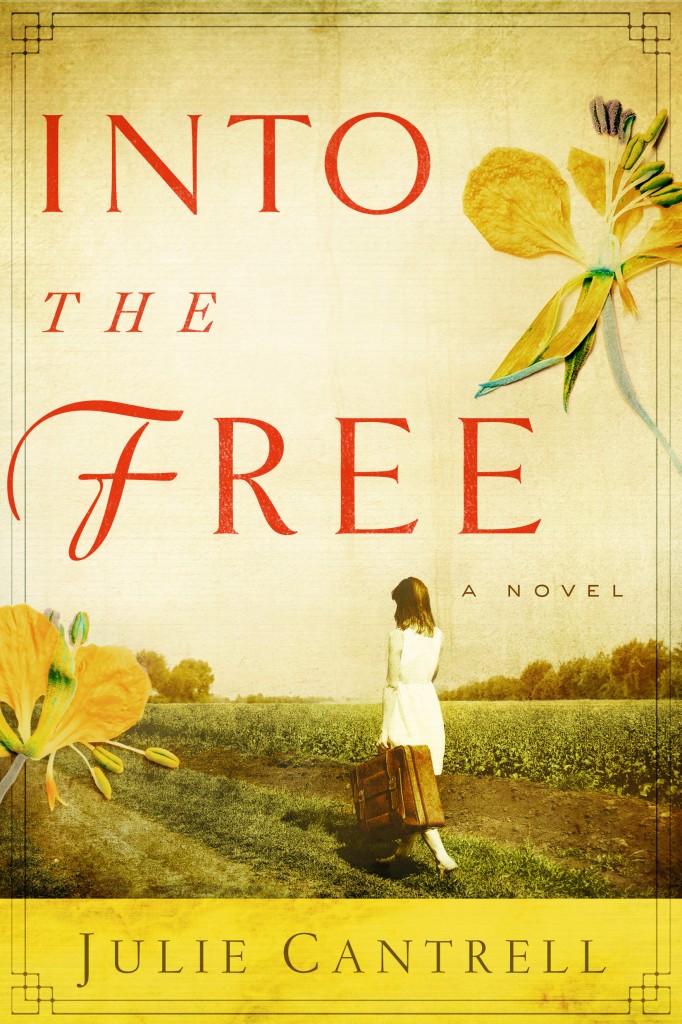 extremely curly. When I was young, particularly in the summer, I was often mistaken as a “black” child or a “colored” child. (I believe this is due to my Choctaw roots, but my full genealogy has never been completed…so who knows?!)
extremely curly. When I was young, particularly in the summer, I was often mistaken as a “black” child or a “colored” child. (I believe this is due to my Choctaw roots, but my full genealogy has never been completed…so who knows?!)
I remember standing in my front yard when the children in the neighborhood came to inspect the new kid. They started throwing rocks at me. I asked them to play. One of them shouted, “Our daddy don’t let us play with no niggers.” I had never heard the “N-Word” and didn’t know what it meant, but I knew immediately I didn’t want to be one. I ran into my home crying and my mother had to explain to me what they were saying.
That one moment in my childhood really opened my eyes to the “other side” of our community. I have always felt connected to the people who were treated differently because of their skin color, religious beliefs, socio-economic status, etc. I also have always been interested in different cultures and have always surrounded myself with a very diverse group of friends.
Still, I had no idea “Gypsies” lived all around me in Louisiana. Since writing the book, several people from my hometown have contacted me to share their secret identity as Romany Travelers. I’ve learned a tremendous amount about this fascinating subculture and will continue sharing some of those interviews on my website. Turns out, I was friends with the “Gypsies” all along…I just never knew it.
How has writing Into the Free impacted you?
Oh goodness, in so many ways. I could go on and on about this one, but I think the biggest impact for me (and an unexpected one) has been the incredibly powerful feedback I’ve received from readers all around the world who write to tell me how much this story has affected them. The letters from women who have been abused are particularly meaningful to me, as they claim this story has helped them heal very old, deep wounds. I read every single letter and most of them make me cry. It’s incredibly humbling to know Millie trusted me with her story, and I’m grateful I’ve had the chance to let her voice be heard.
How did the story come to you? Was it an amalgamation of stories or one in particular, inspired by something specific…?
Originally, I was inspired by the story of the “Gypsy Queen” Kelly Mitchell. I tried to find more information about her life and I was fascinated by what little I could find. But, ultimately, the recorded history was extremely limited, and much of what had been recorded was exaggerated and contradictory to other reports. So, I thought I’d write a novel about a female Traveler, just create the characters out of my imagination and build a fictional life from scratch.
I sat down to start that story, but I immediately had a very clear image of a woman standing on the porch of a run-down shack/cabin. She was obviously very poor and depressed, and she stood there watching a group of “Gypsies” leaving town. She wanted desperately to leave with them, to escape her miserable life, but she was too afraid to take that first step.
So, I started to write her story. But it wasn’t her voice that came to me. Instead, I clearly heard the voice of a young girl. She was sitting high on the limbs of a tree, watching the scene beneath her. I just opened myself up to her and let her tell me all about the world around her, as it seemed to her.
I was actually very surprised by the entire experience. I never intended to write from the point of view of a child, but it didn’t take me long to really care about Millie and the story she needed to share. The Romany Travelers became a part of Millie’s world, but ultimately they are just a smaller thread in a much larger story.
Did you have days where you wanted to put this book away for a bit? I imagine it would’ve been quite heavy at times.
Because I have to fight for time to write in my life, it’s always a treat and I never get tired of writing. I look forward to it and can hardly wait to get back to the computer to find out what will happen next!
Your bio says you are a speech pathologist and literacy advocate, as well as owning a farm. How do you combine all the responsibilities and activities of life with (spectacular) writing?
Spectacular? Wow, I like you! Now slowly step away from the vodka.
In fact, I do juggle a lot of balls in the air at once, and I’ve become awfully good at dropping them. Life is very hectic, and I’m hoping to reach a better balance in the coming year. This past year has been particularly busy, but I’m very lucky that everything I’m doing is something I love. I always say it’s better to be too full than too empty, so I just count my blessings and try not to get stressed. Some days I’m better at that than others.
I’m very excited to hear that you have a sequel to Into the Free planned. Do you have any other fiction works in the pipeline?
Thank you so much. I’m honored you want to read the sequel, and I’m happy you want to know what happens next to Millie. I’m thrilled to announce that David C Cook has offered to publish two additional books after the sequel. It hasn’t been determined yet if these will continue to follow Millie’s story of if they will be an entirely new cast of characters, etc. I’m trying to finish the sequel and then decide if her story is finished or if there’s more to say. I hope you’ll stay tuned.
What’s your favourite way to relax?
Relax? What’s that?
I don’t know that I do much relaxing, but it does calm me down to be in nature. I love to be with my animals outside on the farm. I actually find simple chores like mucking stalls, brushing horses, milking goats, etc. to be very meditative. And I really love to snuggle on the sofa with my family and watch a film on the weekends. We all enjoy watching movies together. And I read, of course. My daughter and I can sit together in the same room and both just read silently for hours. My son tends to draw or build things while we read. He likes to work with his hands. We love being there together, but we’re also happy in our own little worlds. We’re weird like that. We’re also very silly and corny. We play games and have dance parties in the living room. We don’t believe in growing up.
I was interested in the description of Jack’s Rodeo and particularly in the description of how Bump taught Millie in the end, not only to ride a horse but also to work as one with the horse to perform tricks. As the author of this story… what experience do you have with Rodeos, their culture and horses in particular?
That’s a great question. I knew very little about the Rodeo, but I’ve done a lot of research about it now and have learned a ton about the creation of the professional Rodeo world we know today. I have always been interested in horses, and my sweet husband gave me a quarterhorse for my birthday in 2010. Her name is Baydreamer, and she’s taught me everything I know. Now, we also have a boarder on our farm, and she’s a feisty thoroughbred. We also live across the street from a horse farm, and my cousin is a horse trainer. One of my dear friends is also a horse trainer, so I had a lot of wonderful people who helped me learn along the way and who were invaluable in answering questions and reading various drafts to verify the details.
I really enjoyed the mystery and magic surrounding the gypsies too. I can only imagine how a child and especially a vulnerable child like Millie would be enamoured with the characters and lifestyle of the gypsies. Again I would like to ask what experience you might have had with gypsies and/or what you did to research their backgrounds and culture?
I read everything I could find and conducted interviews with older people who had interactions with the Travelers in this region and that time period. I also talked to historians, particularly in the Meridian area (where the story is loosely based). And finally I talked to “Gypsies” in Louisiana, Texas, and Mississippi. While I now know I grew up in an area with many Travelers, I was completely unaware of that as a child. They were embedded in our mainstream culture to a degree that I didn’t realize they had an entirely separate culture outside of that.
As you read this novel he become aware of the overpowering circumstances Millie faced, it became very important that Sloth was a part of the story and continued to be ‘there’ for Millie. In your mind, did Sloth represent someone in particular ? and when you decided he needed to leave Millie… can you explain why you did that?
Sloth is one of my favorite characters. He represents everything good in Millie’s world. He is kind, gentle, stable, steady, and honest. He loves Millie unconditionally and tries to take care of her in his own way. She loves him and he becomes one of the most important people in her life.
When he dies, Millie is too young to fully process the tragic loss. I didn’t plan to write a book with angels in it…not at all…but it seemed natural for Millie to turn to Sloth, even after his death, when she needed to focus on someone kind, gentle, and good. When Millie needed safety and security, she found Sloth.
If you want to analyze the story by literary standards, Sloth represents the “Jesus figure” of the book. He is her savior, in literal and symbolic ways, and he remains Millie’s source of hope when everything else in the world is falling apart. In the steeple, when he doesn’t come, it’s because Millie’s faith is completely broken at that point. She has lost her connection to God. In the end, when Sloth leaves Millie, it’s not that he’s leaving her, per se…our faith teaches us that God is always with us…but that she has reached a deeper place in her faith and she is ready to move to a different understanding of that belief…no longer depending on a vision of Sloth to ground her beliefs but finally accepting the Jesus her mother had taught her about. I’m not sure if I’m making that clear, but I hope I’m able to explain that a bit in this short answer. If nothing else, maybe it’ll give you something to discuss…as you may all have interpreted Sloth’s role in different ways. That’s the fabulous thing about literature. It means something different to every reader…and hopefully everyone takes from this story exactly what each person needs from it.
I was sad that in the story, Diana and Bill Miller, allowed the unspoken past and appearances to their social set to determine their thinking and ultimate choices. It would have been more honest for Diana to reveal her pain to Millie and let her go and live with those at the rodeo. It would seem that Diana’s choice in maintaining her façade was eating her away from the inside:~
Did you write Diana’s character from someone in particular?
No. I didn’t write any characters based on specific people. They’re all completely fictional – my imaginary friends, so to speak. I do love your analysis of her character.
Do you feel there are many Diana’s in the church today?
Unfortunately, I think there are many levels of hypocrisy in the church still today, but ultimately that’s not the spirit of most churches. Most of us can think of people who love to “pretend” to be wonderful Christians, but whose hearts are shallow. They just aren’t far enough along on their spiritual journey to fully understand deep faith yet. Sadly, they put a loud voice to a much larger group of humble, generous, kind, compassionate Christians who spend every day just trying to do the right thing.
And do you think that personal wealth and position in society leaves us vulnerable to the more subtle temptations of keeping up appearances, not trusting others and the burden of doing ‘good’, from a heart that is weary and resigned rather than loving and willing?
I’ve had a lot of different financial situations throughout my life, and I’ve got friends at nearly every level of the financial spectrum (not Bill Gates’ level, but you understand). I have definitely noticed that people with more money tend to be less happy. Of course there are always exceptions, but most of them absolutely seem to have something essential missing in their lives.
Stay tuned for part two of this fabulous interview soon!
Meet Julie:
A speech language pathologist and literacy advocate, Julie Cantrell was the editor-in-chief of the Southern Literary Review. She has served as a freelance writer for ten years and published two children’s books. Julie and her family live in Mississippi, where they operate Valley House Farm.
BLGs’ Book Club ~ Book Loving Girls meet at my home every six weeks to celebrate our love of story and to spend time pondering a selected book and chatting (via email, skype or telephone) with the author ~ I look forward to sharing with you some of the fun and encouragement we have over 2012 and beyond!
Relz Reviewz Extras
Character spotlight on Millie, River & Bump
Visit Julie’s website and journal
Buy Into the Free from Amazon or Koorong

